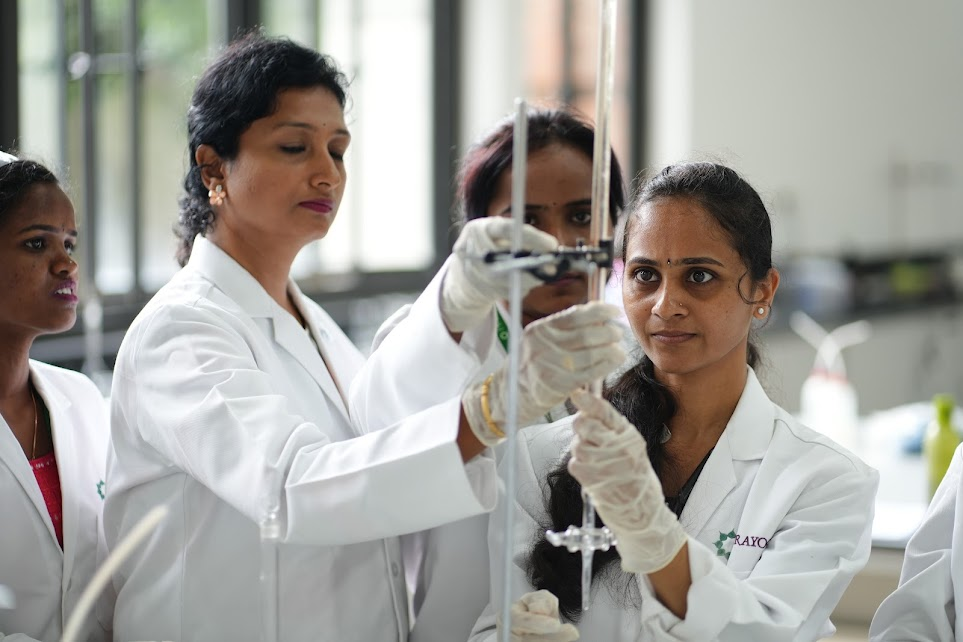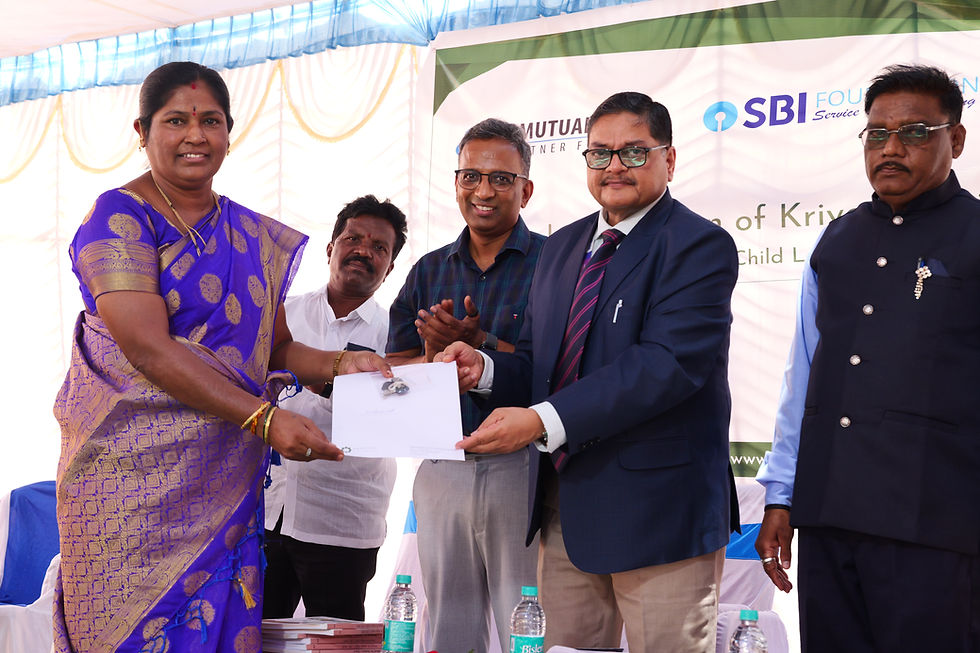The Science of Teaching: Why ‘Why’ Matters More Than ‘What’
- Prayoga Institute
- Aug 13, 2025
- 4 min read
"This is the first time I am doing these experiments myself…” This simple statement, repeated across the room, marked a profound shift in how science teachers see their role—not just as instructors, but as explorers.
From June 11th to 13th, 2025, Prayoga welcomed 78 high school science teachers from Kriya Partner schools to the Teacher Empowerment Program (TEP) Workshop. These educators came from both government and private institutions, united by a shared goal: to make science teaching more engaging, experiential, and meaningful through the Kriya approach. Conducted at the start of the academic year, this residential TEP Workshop sets the tone for reflective, student-centric, teaching-learning in schools, making a difference in education.
The TEP Workshop wasn’t about delivering instructions—it was about sparking introspection. Teachers were encouraged to ask why they teach the way they do, and how they could transform their classrooms into spaces of curiosity and discovery. The Prayoga campus itself set the tone. With its cutting-edge labs, research facilities, and passionate educators, it offered a glimpse into what science education could truly become.
The workshop began with an orientation that introduced teachers to the Kriya framework. Prayoga supports them through structured lessons, lab-based training, and continuous academic guidance. The session helped teachers understand lab planning, the use of handbooks, real-life lesson connections, and meaningful assessment methods.
Soon after, teachers extracted DNA from bananas, compared combustion reactions, explored pressure and force, and examined plastids under microscopes. Here, teachers experienced what it means to teach through exploration, using the same Lab Station materials they will later facilitate for their students. Each experiment helped them connect subject content with questioning, observation, and guided discovery, preparing them to lead their own classrooms with confidence. One teacher said, “This is the first time I am doing these experiments myself, not just telling students to do them.”

Dr. Karuna K Simha, who challenged teachers to think about thinking. How do children reason? What does it mean to develop cognitive skills like seriation and reversibility? This led to rich conversations where teachers began connecting everyday classroom practices to deeper cognitive goals.
The subject-specific panel discussions—a hallmark of the TEP Workshop- were dynamic, open-ended explorations where teachers brought real questions from their classrooms and received thoughtful, experience-rich responses from Prayoga’s expert faculty. Each panel—Physics, Chemistry, and Biology—became a space where ideas collided, misconceptions were unpacked, and new ways of thinking emerged. The facilitators didn’t just answer—they demonstrated, experimented, and invited teachers to think deeper.

Physics Panel: Led by Dr. H.S Nagaraja, Ms. Bhavana Dongre, and Ms. Harshitha B, the session on friction turned into a lively exploration of direction, mass, and surface interactions. Teachers asked about carrom boards, slippery roads. Questions like “Is friction always a resisting force?” turned into lively explorations about direction, mass, and surfaces. The facilitators did not just answer - they experimented, demonstrated, and opened new ways of thinking.
Chemistry Panel: Facilitated by Mr. Arjun, Mr. Anirudh, and Dr. Venkatesh, this session explored conductivity, mercury, and the behavior of oil and metals. A single question—“Can oil conduct electricity?”—sparked a cascade of stories and analogies from classrooms across the room.
Biology Panel: Led by Ms. Divyashree, Dr. Harshavardhan, and Dr. Vikram Singh Tomar, this session was perhaps the most intense. Teachers discussed staining slides, cell membranes, haemoglobin binding, and DNA synthesis. Thoughtful discussions flowed on photosynthesis, cell structure and how to teach them not just as topics, but as experiences. For teachers who did not come from a biology background, it was a breakthrough moment. One teacher said, “I have taught these chapters for years. But only today I feel like I really got it.”
By day 3, our Kriya teachers were designing their own classroom activities using the Observation–Inference–Conclusion (OIC) models learned during the workshop. Their ideas were grounded in local contexts and real-life examples. These ideas were thoughtful, doable, and tailored to their students.
The last session saw a teacher read out a poem to the Prayoga team. Another teacher sang a song about metals. These heartfelt expressions showed how the teachers opened up, reflected, and rediscovered their purpose.
Chandan, a Kriya student who had accompanied his mother to the TEP workshop, stood up and shared how science had become exciting for him after being introduced to Kriya classes at his school. As a regular participant of the workshop, and our youngest participant, he also reflected on the way the TEP Workshops included many experiments that he could also perform.
Dr. H.S. Nagaraja inspired the journey ahead, sending off the teachers with heartfelt warmth and a sense of purpose. He reminded teachers that their role goes far beyond textbooks- that they are mentors, guides, performers, and most importantly, someone their students look up to. “Begin your class with a question,” he said, “not an answer.”
And Dr. K.S. Nagabhushana’s final words stayed with many: “If you want to rebuild a nation, start with your teachers.”

As the buses pulled out of the campus that evening, there was a sense of reflection. Something had changed with more clarity, more courage and more curiosity. One teacher summed it up best: “I did not just attend a workshop. I found new reasons to love teaching again.”

By Supriya N and Sanjana Rangan
_PNG.png)




Comments